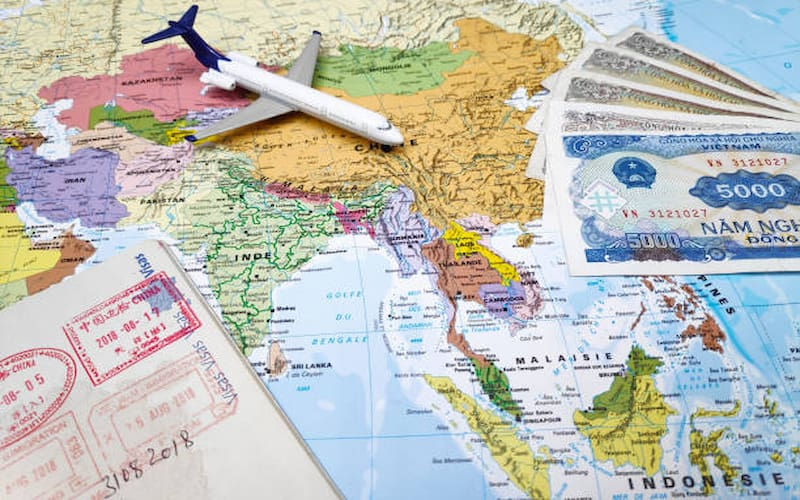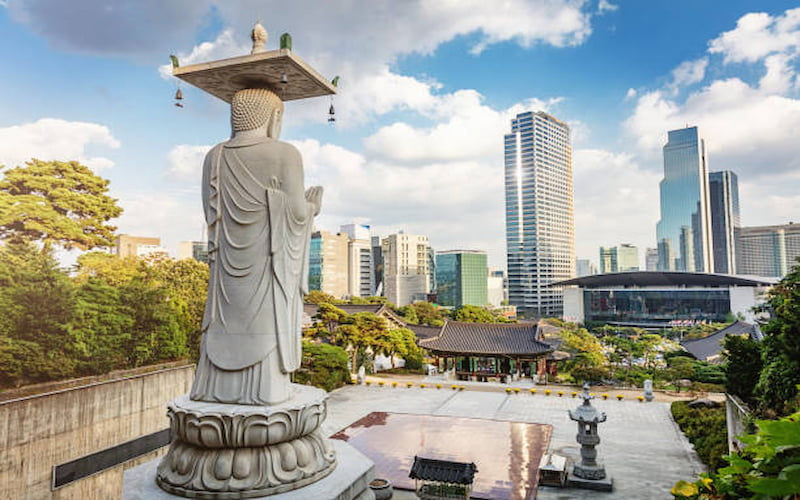Difference Between Vietnam Tourist Visa and Business Visa for Indians
- Adhil
- Aug 28
- 3 min read

Traveling to Vietnam has become increasingly popular among Indian citizens, whether for leisure trips, cultural exploration, or business opportunities. However, before planning your visit, it is essential to understand the visa options available. The two most common types are the Vietnam Tourist Visa and the Business Visa, both serving different purposes and having distinct application requirements. Knowing the difference between them will help you choose the right category and prepare accordingly.
Vietnam Tourist Visa – Purpose and Overview
The Vietnam Tourist Visa is primarily issued to Indian travelers visiting the country for vacation, sightseeing, cultural experiences, or short visits with friends and family. This visa is not valid for any form of employment or long-term stay. It is best suited for individuals looking to enjoy Vietnam’s scenic beauty, explore famous destinations such as Hanoi, Ho Chi Minh City, Ha Long Bay, and immerse themselves in the rich Vietnamese culture.
Many Indian travelers choose to Apply Vietnam Tourist Visa from India through trusted visa consultants or directly via the official application channels. The process is simple, and the approval rate is generally high for genuine travel purposes.
Vietnam Tourist Visa requirements for Indians
To apply successfully, applicants need to provide specific documents. The Vietnam Tourist Visa requirements for Indians usually include:
A valid Indian passport with at least six months’ validity from the date of entry.
Recent passport-size photographs as per Vietnam’s visa guidelines.
A completed visa application form.
Proof of accommodation booking (hotel reservations or invitation letter from a host in Vietnam).
Return flight ticket or travel itinerary.
Sufficient financial proof to cover expenses during the stay.
Typically, tourist visas can be issued as single-entry (valid for 30 days) or multiple-entry visas depending on the traveler’s needs. Extensions may be possible, but they must be applied for while inside Vietnam.
Vietnam Business Visa – Purpose and Overview
The Business Visa is designed for Indian citizens traveling to Vietnam for professional reasons such as meetings, conferences, business negotiations, or long-term corporate assignments. Unlike the tourist visa, this visa allows entry for work-related purposes, though it does not replace a work permit if one plans to take up employment in Vietnam.
For corporate travelers, this visa provides flexibility in terms of duration and number of entries. Companies in Vietnam often provide sponsorship letters to Indian applicants, which strengthens their visa application.
Vietnam Business Visa requirements for Indians
The Vietnam Business Visa requirements for Indians differ slightly from the tourist visa since it is intended for official purposes. Applicants are required to provide:
A valid Indian passport with at least six months’ validity.
Passport-sized photographs according to Vietnam’s specifications.
A duly completed visa application form.
An official business invitation letter from a Vietnamese company or organization.
Proof of travel itinerary and accommodation.
Supporting documents like company profile or covering letter from the Indian employer.
This visa is usually available for 1 month, 3 months, 6 months, or even 12 months depending on the business need. Both single-entry and multiple-entry options are available, making it suitable for frequent business travelers.
Vietnam Visa application process for Indians
The Vietnam Visa application process for Indians is similar for both categories, with slight variations depending on the type of visa:
Online Application (E-Visa): Indians can apply for an e-visa directly through the Vietnam Immigration Department’s portal. The process involves filling out an online form, uploading documents, and paying the fee online. The e-visa is generally valid for 30 days, suitable for both tourism and short-term business trips.
Visa on Arrival (VOA): Another popular option is Visa on Arrival, where applicants first obtain an approval letter online through authorized agencies and collect the visa at designated airports in Vietnam (Hanoi, Da Nang, or Ho Chi Minh City). This option is widely used by both tourists and business travelers.
Embassy Application: Applicants may also apply through the Embassy of Vietnam in India by submitting the application form, documents, and fees in person. This is often preferred for longer-duration visas, especially for business purposes.
In all cases, ensuring accuracy in the application and providing genuine supporting documents is crucial for approval.
Conclusion
For Indian citizens planning a trip to Vietnam, the choice between a tourist visa and a business visa depends entirely on the purpose of travel. If your visit is purely for leisure or cultural exploration, a tourist visa is the right option. However, if you are attending meetings, exploring trade opportunities, or traveling on behalf of your company, the business visa is the correct choice.
When preparing your documents, be sure to check the Vietnam Tourist Visa requirements for Indians and the Vietnam Business Visa requirements for Indians to avoid delays or rejections. Also, carefully follow the Vietnam Visa application process for Indians to ensure a smooth experience. Whether you want to Apply Vietnam Tourist Visa from India for a holiday or Apply Vietnam Business Visa from India for professional reasons, choosing the correct visa category will make your journey to Vietnam stress-free and legally compliant.
By understanding the differences clearly, Indian travelers can confidently plan their Vietnam trip, whether for relaxation or business success.








Comments